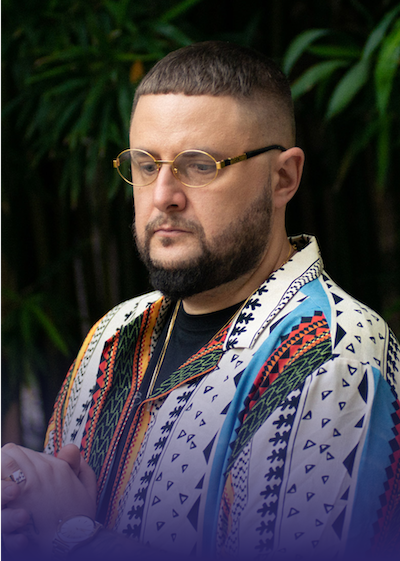Journalism
In today's fast-paced world, journalism plays a crucial role in disseminating information, shaping public opinion and holding those in power to account. The ethical standards and practices in journalism are just as important. Media ethics in journalism refers to the moral principles and guidelines that journalists should follow in their work. These principles contribute to accuracy, fairness, transparency and accountability in reporting and ultimately maintain the integrity and credibility of the profession. In this article, we will explore the importance of media ethics in journalism and its impact on society.
Overview
What is media ethics?
Media ethics refers to the moral and ethical principles that should be applied in journalism. It sets out the rules by which journalists should work and how they should present information. Media ethics includes aspects such as Truthfulness, Objectivity, Responsibility, Transparency and the Protection of privacy.
The role of media ethics in journalism
The Media ethics is crucial to being a trustworthy source of information and gaining the trust of readers and viewers. By adhering to ethical principles, journalists can ensure that they provide impartial and accurate reporting. This is particularly important at a time when Fake news and misleading information can be easily disseminated.
Deepen your understanding of journalism with respected industry experts. Secure your place on our exclusive online course now and pave the way for your career in the media world!
The development of media ethics
Over the years, the Media ethics has evolved in response to technological advances, social dynamics and the challenges journalists face. From the advent of print media to the digital age, ethical considerations have extended to various platforms such as television, radio and online journalism. Today, with the rise of social media and citizen journalism, media ethics has become even more important to uphold standards of responsible and ethical reporting.
The principles of media ethics
- Accuracy and truthfulnessEnsuring the accuracy of information and verifying facts before reporting are fundamental to media ethics. Journalists have a responsibility to provide accurate and reliable information to the public.
- Fairness and objectivityJournalists should strive to present information in a fair and balanced way, avoiding bias or favoritism. Objectivity is crucial in reporting events so that the audience can form their own opinion.
- Independence and freedomJournalists must maintain their independence from undue influence, be it political, commercial or personal. Freedom of the press is a cornerstone of democracy and should be protected.
- Transparency and accountabilityJournalists should be transparent about their sources, conflicts of interest and possible biases. Accountability is crucial to acknowledge and correct errors or misinformation in reporting.

Learn new skills live and interactively from the world's best mentors
Ethical dilemmas in journalism
Media ethics often face various ethical dilemmas that require careful consideration and decision-making. Journalists face situations where they must balance the public's right to know with the protection of individual privacy, national security concerns and potential harm. Some common ethical dilemmas are:
- Conflict of interestWhen journalists have personal or financial interests that could jeopardize their objectivity, they face a conflict of interest. It is important to disclose such conflicts and avoid biased reporting.
- Privacy and sensationalismThe balance between the public's right to information and the individual's right to privacy is a constant challenge. Journalists must exercise discretion and stop sensationalizing stories that invade people's privacy.
- Anonymous sourcesProtecting the identity of sources is crucial for investigative journalism, but raises ethical concerns. Journalists must assess the credibility and motives of anonymous sources before using their information.
- Digital manipulationIn the age of digital media, the manipulation of images, videos and audio recordings is becoming increasingly sophisticated. Journalists must check the authenticity of digital content and avoid spreading misinformation.
- Fake news and misinformationThe spread of fake news and misinformation via social media has created a significant problem. Journalists play an important role in uncovering false information and providing accurate reporting.
- Payment from sourcesThe practice of paying sources for information raises ethical questions. Although this can incentivize sources to go public, it can also compromise the credibility and objectivity of the information.
Previous
Next
Test free of charge
The role of media ethics in society
Media ethics is not only important to preserve the integrity of journalism, but also has a significant impact on the Society as a whole. Here are some important aspects:
- Public trust and credibilityMedia ethics helps to build and maintain public trust in journalism. When the media adhere to ethical standards, people are more likely to rely on the information they provide.
- Democracy and accountabilityA free and ethical press is crucial for a functioning democracy. Journalists act as watchdogs, holding those in power to account and exposing corruption or wrongdoing.
- Protection of vulnerable personsEthical reporting takes into account the potential harm that irresponsible reporting can cause to individuals or communities. Responsible journalism avoids unnecessary sensationalization or exploitation.
- Promoting diversity and inclusionEthical reporting should reflect the different voices and experiences in society. It aims to avoid stereotypes and prejudices and promote inclusion and understanding.
- Combating misinformationIn an era of fake news and misinformation, media ethics play a crucial role in combating misinformation and ensuring that accurate information reaches the public.
Discover the exciting world of journalism: become a media professional
Are you interested in finding out more about the Journalism to find out more? Would you like to deepen your knowledge of the media and a career in journalism? Then register now for our Journalism Circle and learn everything you need to know about the exciting profession of journalism live. From research techniques and interviewing to media ethics - here you will receive valuable tips and tricks that will make you a media professional. Join us now and immerse yourself in the world of journalism!














